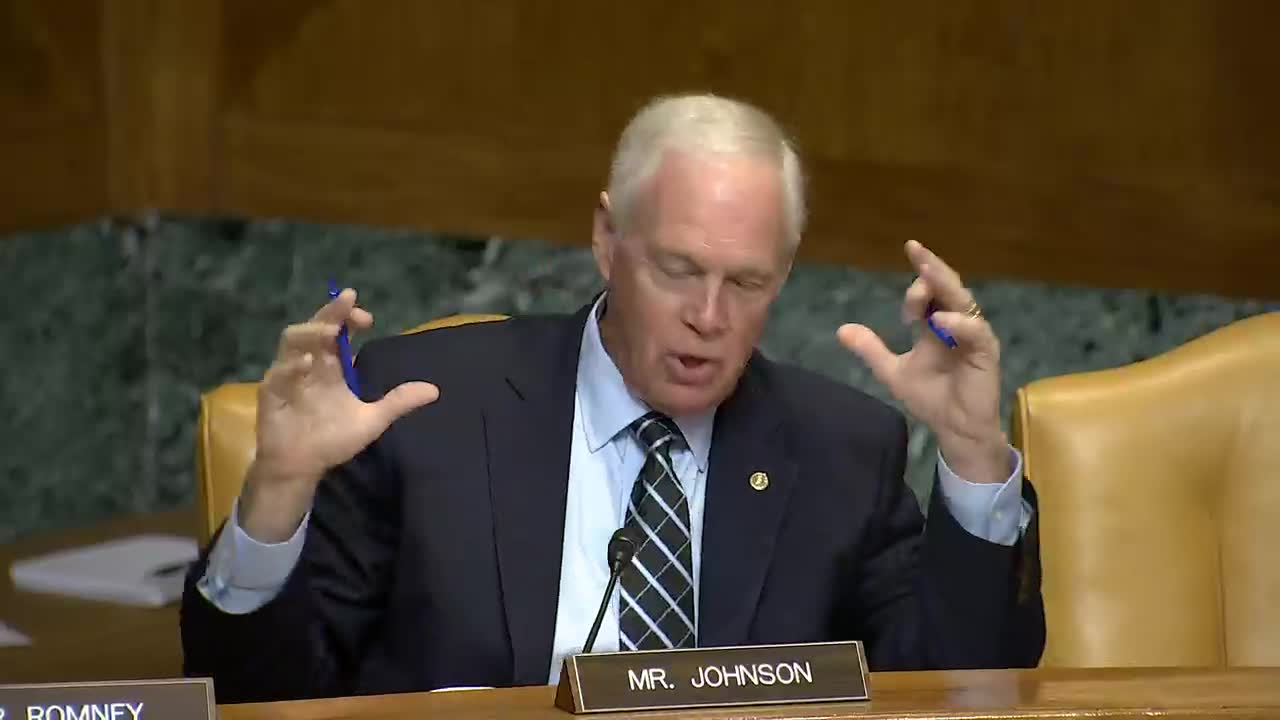Insurance Crisis Deepens as Climate Change Fuels Premium Hikes
June 05, 2024 | Budget: Senate Committee, Standing Committees - House & Senate, Congressional Hearings Compilation

This article was created by AI summarizing key points discussed. AI makes mistakes, so for full details and context, please refer to the video of the full meeting. Please report any errors so we can fix them. Report an error »

In a recent government meeting, lawmakers and experts discussed the pressing challenges facing the insurance market, particularly in relation to climate change and its impact on premiums and coverage availability. The conversation highlighted how catastrophic events, such as hurricanes and wildfires, are distorting the insurance marketplace, leading to increased costs for homeowners across the country.
One key point raised was the concern that residents in states like Wisconsin may be unfairly bearing the financial burden of insurance market distortions caused by disasters in other regions, particularly Florida. Lawmakers questioned whether the rising premiums in their state were a direct consequence of the turmoil in Florida's insurance market, where reinsurance companies are reportedly facing significant losses.
The discussion also touched on the fundamental mechanics of insurance, emphasizing that premiums should ideally cover losses without dipping into reserves. However, the current situation suggests that many insurance companies are struggling to maintain financial solvency, prompting regulatory scrutiny to ensure they can meet their obligations to policyholders.
Senator Markley shifted the focus to the West Coast, where wildfires have become a growing concern. He noted that residents in states like California and Oregon are experiencing skyrocketing insurance rates or are unable to secure coverage altogether. This issue is compounded by the requirements of mortgage companies, which mandate insurance for homeowners. If private insurers are unavailable, these companies often impose costly policies that can be unaffordable for many families, creating a precarious situation for homeowners.
Experts in the meeting acknowledged the need for policy responses to address these challenges, particularly as climate change continues to exacerbate the frequency and severity of natural disasters. The dialogue underscored the urgent need for a comprehensive approach to reform the insurance market, ensuring that it remains accessible and affordable for all homeowners, regardless of their geographic location.
One key point raised was the concern that residents in states like Wisconsin may be unfairly bearing the financial burden of insurance market distortions caused by disasters in other regions, particularly Florida. Lawmakers questioned whether the rising premiums in their state were a direct consequence of the turmoil in Florida's insurance market, where reinsurance companies are reportedly facing significant losses.
The discussion also touched on the fundamental mechanics of insurance, emphasizing that premiums should ideally cover losses without dipping into reserves. However, the current situation suggests that many insurance companies are struggling to maintain financial solvency, prompting regulatory scrutiny to ensure they can meet their obligations to policyholders.
Senator Markley shifted the focus to the West Coast, where wildfires have become a growing concern. He noted that residents in states like California and Oregon are experiencing skyrocketing insurance rates or are unable to secure coverage altogether. This issue is compounded by the requirements of mortgage companies, which mandate insurance for homeowners. If private insurers are unavailable, these companies often impose costly policies that can be unaffordable for many families, creating a precarious situation for homeowners.
Experts in the meeting acknowledged the need for policy responses to address these challenges, particularly as climate change continues to exacerbate the frequency and severity of natural disasters. The dialogue underscored the urgent need for a comprehensive approach to reform the insurance market, ensuring that it remains accessible and affordable for all homeowners, regardless of their geographic location.
View full meeting
This article is based on a recent meeting—watch the full video and explore the complete transcript for deeper insights into the discussion.
View full meeting